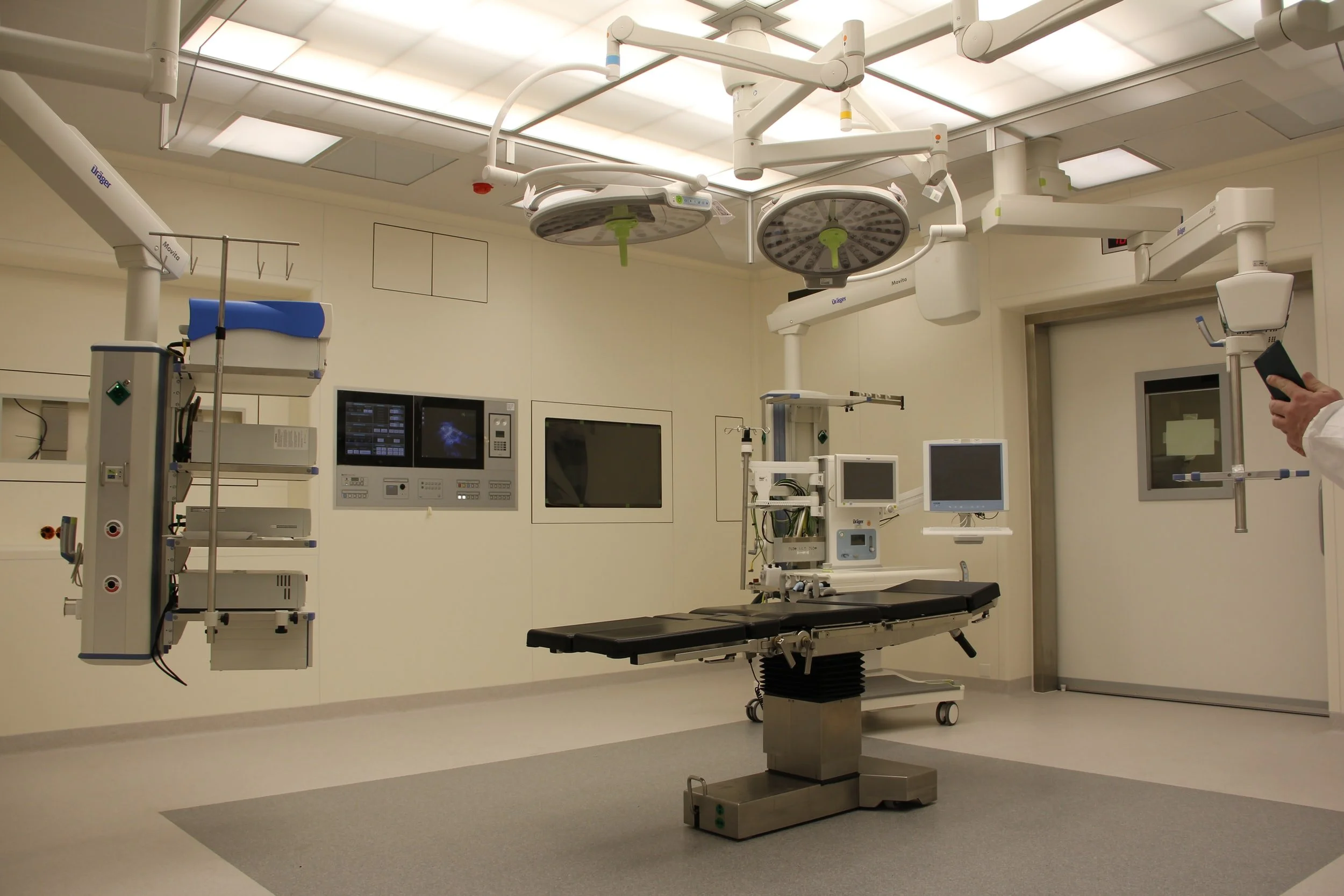Thoughts From the Surgical Center
You know what’s more expensive than medical care, but still doesn’t make you feel any better when you have strep throat?
Pretty much everything they sell at Disney World.
Last October, my daughter came down with strep throat during our family vacation. After kvetching a bit about our luck that this was the second Disney vacation in a row that she got sick enough to disrupt plans, we found a local urgent care just outside of Disney World property. They quickly diagnosed her, got her some antibiotics, and let us get on with the day. Frankly, I wish our urgent care at home worked as well as Buena Vista Urgent Care.
Once we got back to New England, even after the antibiotics had run their course, my daughter still sounded hoarse and a bit nasal for the next two months. We brought her to her pediatrician for a separate issue who saw that her tonsils were quite large, and thought it might be worthwhile to bring her to a pediatric otolaryngologist. One of the benefits of living just north of Boston is that the best pediatric hospital on the planet is in our backyard. We quickly made her an appointment at Boston Children’s Hospital - because why wouldn’t you, right?
The medical care: amazing.
The parking: substantially less amazing.
When she arrived at her appointment, she was first seen by a physician assistant - who can handle most common issues - that did a comprehensive check on her and then documented their observations for the doctor. The doctor came in, looked in her throat with a flashlight, and said, “Yeah, those are huge. Those need to go.” She had incredible confidence and was really only confirming that she agreed with our pediatrician. We scheduled surgery and waited.
Last week the time came for surgery and so I drove my daughter down to Boston Children’s Hospital. When we checked in, they made sure to check her and her stuffed elephant “Ellie” in and both got matching bracelets. The medical assistant took her vitals and talked to my daughter about Hannah Montana and Spongebob Squarepants with genuine enthusiasm. While we waiting for the OR to open up, they brought games and coloring and offered cartoons. I sat with her and talked to the surgeon, the anesthesiologist, and several nurses. They all asked her if she had any questions, and the anesthesiologist - “Doctor Mike” - especially made her laugh and had about the best bedside manner of any doctor I’ve ever seen.
This. Except with your little girl on it… wheeling away from you.
Then almost before I realized it was happening, I hugged my seven-year-old little girl as they wheeled her away down the hall to have her tonsils and adenoids removed. To say you feel powerless when you watch your child rolled away from you and be in the hands of doctors in a room that you cannot see, where you know they are going to intentionally inflict wounds albeit in the service of helping her is a gross oversimplification. I’ve never felt more impotent.
The preoperative nurse was standing a bit away and as I turned, she caught my eye.
“Are you okay?” There was something about the way she said it that made me instantly realize that she had asked this same question to thousands of parents standing where I was standing. Possibly dozens just that day. Her look of caring concern was either genuine or incredibly well rehearsed.
“Yeah. I’m okay,” I wasn’t, but I wasn’t distraught either. “Look, she’s in literally the best place in the world for this. I’m just..” I trailed off, not exactly sure what word I was looking for.
“A dad.” She found a much better word than I was looking for.
She offered me as much time as I needed to collect our stuff (and myself) and she walked me over to the waiting area, which was well thought out with separate areas with tables very well-spaced apart, and explained how they would check on me, and suggested that I go downstairs to get something for lunch. Then she offered me a Twix bar and told me where they keep the candy. I did decide to grab something to eat, and on the way down no less than three badged employees cheerily asked me if I needed help finding anything. I quickly found some soup and went back upstairs to wait. I was checked on more than once, and was assured that “everyone gets antsy.”
They had promised me it would be about 60 minutes for the surgery to finish, and then another 30 before I could see her again. They were a bit off, because 58 minutes later the doctor came in to tell me in no uncertain terms that this was a textbook, boring surgery and that my daughter did great. She had the exact same demeanor that I would expect a plumber to have when they update you after they fix a leaking faucet. Everything about the conversation boiled down to “Hey, I just did that thing that I’ve done three thousand times before. It went exactly as it should after so much practice.”
Almost exactly a half hour later, they came to get me and I went in to the PACU to see her. As soon as I saw her, I bent over to tell her how proud I was of her and how much I love her. Then I realized there was a nurse standing there and apologized for not introducing myself. Her response was classic; “I’m not the first person people talk to back here. It’s always the kids first, as it should be. I’m Emily, and I’ll be with you for the next two hours.” She was well-practiced and went over everything we’d need to know as my daughter recovered at home. She was excellent with my daughter, answered every question I came up with, and even briefly joined in on a family phone call with my wife.
My daughter was still feeling the anesthesia on the way home, and slept the overwhelming majority of the hour-and-forty-five-minute trip (thanks, Boston traffic), which gave me time to think about how thankful I was that we not only have such incredible medical care close by, but that we have access to it. It also gave me an opportunity to think about how much went right during that visit.
I will never compare going to the DMV to getting surgery again.
Going to the DMV is so much worse.
Literally every single person we interacted with was caring, compassionate, focused on primarily my daughter’s wellbeing, and secondarily to my own. They made us feel like we were VIPs and ready to easily handle anything that came up. They have a well-practiced routine that doesn’t feel like a routine. It feels like a bespoke process because it works so well, and there was so much attention given to us. It was the antithesis of the DMV; I almost didn’t even know other families were there.
I found myself in awe at how smoothly everything had gone. The most arduous part of the process was truly getting home in Friday rush hour traffic heading north out of Boston. As I talked about the experience with some other parents who’d been to Boston Children’s before, I quickly realized that my experience was not unique - even though it felt like it almost had to be.
So, what does that have to do with this blog? What does that have to do with leading IT teams? Simply this: if you can make your customers, your clients, or your colleagues feel like I felt at that hospital - you’ll be doing a lot right. If you have practiced your craft enough that you obviously know it cold, you will inspire confidence. If you spend the time to show you care personally about who you are serving, you will build trust. If you spend the time to really think through the experience they will have, you’ll engender appreciation. And if you put them all together - you’ll have built an incredible experience and service for your clients.
Just because the stakes are lower doesn’t mean you should care less.
If you’re running a service desk or desktop support operation you should have your process so well-defined and so well understood by your team that everyone feels like they’re getting VIP level service. If you are a cloud architect, you should practice your craft so often that people don’t worry that you need to consult the documentation to figure out how to spin up a new database or service. If you clearly explain processes and are accurate when you tell someone a process will take a certain amount of time, you will build a reputation for competence and trustworthiness. And if you show individual interest in people in emails, during meetings, and when attending service calls, they’ll feel like you’re really invested in them.
That kind of support is incredibly important. After all, if my daughter and I can be made to feel special and important for something as unenjoyable as surgery, then you can definitely make your “patients” feel the same way when you’re helping them or taking care of their technology needs. Just like surgery, taking care of a client goes beyond what happens in the OR.
Questions for reflection:
Where have you been that they are so good at what they do that you were in awe?
When’s the last time you strived to provide that same level of awe to the people who come to you for support or help?
What is one thing you can do differently to build confidence, trust, or relationships with your clients?








